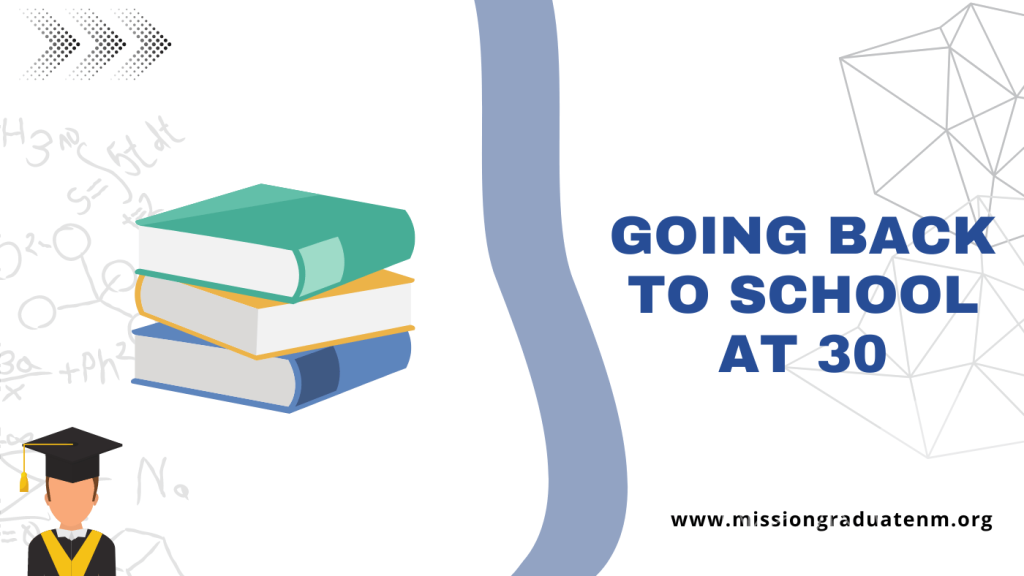As artificial intelligence continues to develop, many worry about its potential to replace human jobs, but there are 12 Jobs That AI Can’t Replace, ensuring a balance between technology and human expertise.
While AI brings significant advancements in automation, however, there are still a lot of professions that require a human touch.
Jobs that demand emotional intelligence, creativity, empathy, and critical thinking are less likely to be replaced by machines since they cannot replicate them.
While AI can enhance tasks like data analysis or customer service automation, it struggles to replicate the complex skills humans bring to the table.
In this post, we explore some of the jobs that AI can’t replace, highlighting roles where human expertise and personal connection remain irreplaceable when it comes to the landscape of work.
Overview: Jobs AI Can’t Replace
The table below compiles the jobs AI can’t replace or the jobs least likely to be replaced by AI. The table also shows how AI fares against each, all at a quick glance:
| Jobs AI Can’t Replace | Skillset required | How Does AI Perform |
|---|---|---|
| Health Care | Empathy, critical thinking, problem-solving, patient care | AI assists with diagnostics & data processing but can’t replicate human empathy and judgment. |
| Creative and artistic fields | Creativity, imagination, emotional intelligence, originality | AI can generate content but lacks emotional depth and unique perspectives. |
| Environment, agriculture, and conservation | Knowledge of ecosystems, environmental science, problem-solving | AI helps with data analysis and modeling, but human intuition is crucial for in-field decisions. |
| Skilled trades and construction | Manual dexterity, problem-solving, technical expertise | AI can automate some tasks but still requires skilled labor for complex, hands-on work. |
| Academia, education, and training | Communication, teaching, mentoring, subject expertise | AI can aid in learning tools but cannot replace the personal interaction and mentorship of a teacher. |
| Service and personal care | Empathy, interpersonal skills, problem-solving, patience | AI can automate some tasks but can’t replace personal care and understanding in services. |
| Media and communication | Writing, storytelling, creativity, analytical skills | AI can generate content but lacks the storytelling depth, cultural understanding, and voice of a human. |
| Sports, fitness, and recreation | Coaching, motivational skills, physical expertise, adaptability | AI can analyze performance but cannot replicate human coaching or physical activity. |
| Public services and social work | Empathy, conflict resolution, problem-solving, ethical judgment | AI can aid in administration but cannot perform the nuanced human interactions required. |
| Religion, ethics, and philosophy | Critical thinking, moral reasoning, empathy, theological knowledge | AI lacks the ability to understand and interpret complex ethical, spiritual, or philosophical dilemmas. |
| Food and beverage | Culinary skills, creativity, customer service, multitasking | AI can assist with food preparation but can’t replicate the nuanced flavors or personal touch of a human chef. |
| Utilities | Technical expertise, problem-solving, manual skills, troubleshooting | AI can monitor systems but still relies on human expertise for critical system management and repairs. |
Let us now take a look at each job AI won’t replace or, rather, is least likely to be replaced by AI.
1. Health Care
Despite AI’s advancements, healthcare relies on human intuition, compassion, and adaptability. Doctors, nurses, and therapists blend medical expertise with empathy. This is something that AI can’t replicate.

While AI can aid in diagnostics, record management, and data analysis, careers like surgery, physical therapy, and radiology that fall under Healthcare jobs require hands-on precision, ethical decision-making, and interpersonal skills, ensuring their long-term relevance in patient care.
Healthcare jobs that won’t be replaced by AI:
- General practitioner
- Surgeon
- Psychologist
- Psychiatrist
- Nurse
- Physical therapist
- Pharmacist
- Veterinarian
2. Creative And Artistic Fields
AI may assist in creative tasks but can’t replace human originality. Artists, writers, and musicians infuse their work with emotion, originality, and personal experience, and these are the very elements the AI lacks.

While AI-generated content is based on existing data and algorithms, true creativity stems from intuition, brainstorming, experimentation, and cultural influence.
Whether in painting, music, or advertising, human minds will always be the driving force behind artistic innovation and storytelling.
Creative and artistic fields jobs that won’t be replaced by AI:
- Jeweler
- Dancer
- Stage actor
- Watchmaker
- Sculptor
- Blacksmith
- Painter
- Live musician
3. Environment, Agriculture, And Conservation
AI may assist in conservation and farming, but it can’t replace human interaction with nature. Farmers and environmentalists work in unpredictable environments, from planting crops to protecting wildlife.

While AI helps monitor poaching and crop health, real-world problem-solving, adaptability, and ethical decision-making require human expertise.
The future of sustainability depends on the synergy between technology and human decision-making. AI can help choose the best strategy, but its the humans who can bring it to fruition.
Environment, agriculture, and conservation jobs that won’t be replaced by AI:
- Agricultural scientist
- Arborist
- Botanist
- Environmental conservationist
- Farmer
- Fisherman
- Horticulturist
- Landscaper
- Park ranger
4. Skilled Trades And Construction
AI can enhance construction efficiency, but it can’t replace skilled tradespeople. Carpenters, electricians, and plumbers rely on hands-on expertise, adaptability, and problem-solving in dynamic environments.

While AI assists with design and automation, the human touch ensures precision, safety, and quality craftsmanship. The construction industry will always need skilled professionals who can think on their feet and handle complex, real-world challenges.
Skilled trades and construction jobs that won’t be replaced by AI:
- Architect
- Bricklayer
- Builder
- Carpenter
- Civil engineer
- House painter
- Mechanic
- Roofer
- Stonemason
5. Academia, Education, And Training
AI can support education, but it can’t replace human teachers, mentors, and researchers. Effective teaching involves more than delivering information. It requires relationship-building, personalized guidance, and emotional intelligence.

While AI aids in grading and lesson planning, human educators inspire curiosity, adapt to student’s needs, and provide mentorship.
Likewise, academic research depends on human-led discovery, as AI can only analyze existing data, not create new knowledge.
Academia, education, and training jobs that AI won’t replace:
- Anthropologist
- Archeologist
- Classroom teacher
- Curriculum developer
- Education administrator
- Historian
- Professor
- Scientific researcher
- Special education professional
6. Service And Personal Care
Service and personal care jobs thrive on human connection, empathy, and skill—things AI can’t replicate. From event planners to tailors and house cleaners, these roles require adaptability and a personal touch.

While AI can assist with scheduling and marketing, real interactions remain irreplaceable. In fact, the global personal care services market is projected to reach $1.4 trillion by 2027, highlighting sustained demand for human-led services.
Service and personal care jobs that won’t be replaced by AI:
- Animal trainer
- Esthetician
- Hairstylist
- Makeup artist
- Massage therapist
- Pet groomer
- Tailor
- Tattoo artist
Read more about the 11 Best Paying Consumer Services Jobs In 2025 here.
7. Sports, Fitness, And Recreation
Sports, fitness, and recreation rely on human connection and expertise—qualities AI can’t replicate. Personal trainers, coaches, and adventure guides use communication, motivation, and personalized planning to help individuals succeed.

While AI may assist in tracking progress, it can’t replace the experience and adaptability of a human trainer. Professional athletes and recreational leaders provide insights and skills that AI simply can’t match in live, physical environments.
Sports, fitness, and recreation jobs that won’t be replaced by AI:
- Adventure sports instructor
- Coach
- Professional athlete
- Professional dancer
- Sailing instructor
- Scuba diving instructor
- Snorkeling tour guide
- Surf instructor
8. Social Work And Public Service
AI can assist with tasks like diagnostics or route planning, but jobs in social work and public service rely on human presence and emotional intelligence.

Social workers, first responders, and NGO workers tackle complex issues with empathy, problem-solving, and trust-building.
These roles involve close, personal interactions that machines can’t replicate, ensuring that humans will continue to play a vital role in these life-saving professions.
Public services and social work jobs that won’t be replaced by AI:
- Firefighter
- Mail carrier
- NGO worker
- Paramedic
- Parks and Recreation manager
- Police officer
- Search and rescue worker
- Social worker
- Trash collector
9. Religion, Ethics, And Philosophy
Jobs in religion, ethics, and philosophy require deep empathy and human judgment—traits that AI simply can’t replicate.

Spiritual leaders, counselors, and ethicists offer emotional support, mentorship, and guidance based on personal experience and moral considerations.
While AI can assist with research, it cannot replace the human connection needed to lead communities or navigate complex ethical dilemmas, ensuring that these roles remain firmly in human hands.
Religion, ethics, and philosophy jobs that won’t be replaced by AI:
- Monk
- Priest
- Pastor
- Nun
- Guide
- Philosopher
10. Media And Communication
Media and communication careers, especially investigative reporting, depend on human curiosity, critical thinking, and the ability to tell compelling stories—qualities AI can’t replicate.

While AI can assist in data analysis or content creation, the heart of journalism lies in human insight, ethical decision-making, and connection with the audience.
Investigative reporters and communicators will always bring the critical thinking and creativity AI lacks.
Media and communication jobs that won’t be replaced by AI:
- Investigative reporter
- On-location reporter
- Host
- Photojournalist
- Motivational speaker
- Seminar leader
11. Food And Beverage
AI can assist with recipe suggestions and menu planning, but it can’t replace the creativity and skill of chefs, bakers, and brewers.

Cooking is an art that requires human taste, adaptability, and precision, especially when crafting unique dishes and flavors.
Whether sautéing or taste testing, professionals will always be needed for the hands-on expertise and sensory experience that machines simply can’t provide.
Food and beverage jobs that won’t be replaced by AI:
- Chef
- Baker
- Barista
- Caterer
- Sommelier
- Food Critic
12. Utilities
In the utilities sector, AI can help optimize energy distribution by analyzing grid performance, but human workers are still needed for on-the-ground repairs and adjustments.

For instance, if AI detects an issue with electrical flow, human technicians are required to investigate the cause, fix the malfunction, and restore service. The combination of AI analysis and human intervention ensures continuous, safe utility operations.
Utilities jobs that won’t be replaced by AI:
- Gas inspector
- Solar panel installer
- Public utility administrator
- Hydroelectric plant operator
- Nuclear power plant manager
Can AI Replace These Jobs In The Near Future With New Algorithm Updates?
AI is becoming increasingly advanced, but can it completely replace these roles with future updates? Many professions demand human thinking, creativity, and emotional understanding—qualities AI still cannot fully replicate. This is especially true for the 12 Jobs That AI Can’t Replace, which rely heavily on uniquely human skills.
Healthcare workers, teachers, skilled tradespeople, and artists use their expertise to make decisions, solve problems, and connect with others in ways that machines cannot.
Even with better AI, these jobs will always need human skills, real-world experience, and a personal touch to ensure quality, safety, and meaningful interactions.
Conclusion: AI Won’t Replace Jobs As Much As It Would Speed Them Up
While AI is transforming industries, it cannot replace every job. Many roles require human intuition, creativity, and emotional intelligence. The very things that AI lacks.
Healthcare professionals provide hands-on care and make critical decisions that machines cannot. Artists, musicians, and writers bring personal expression and originality that AI-generated content simply cannot match.
Skilled trades, educators, and conservationists rely on adaptability and real-world problem-solving that technology cannot fully replace. Even in service, public safety, and religious roles, human connection remains essential.
AI may assist with automation, but the need for human skill, experience, and judgment will always exist.
As technology advances, these jobs will continue to grow, which will also prove that algorithms or machines cannot replace human expertise and compassion but only be supplemented by them.
FAQs
Financial analysts, investment advisors, and risk managers require human judgment, ethical and nuanced decision-making, and personalized strategies. AI lacks these skills, which makes these jobs safe from AI replacement.
Doctors, nurses, surgeons, and therapists rely on hands-on expertise, empathy, and ethical decision-making. AI cannot replicate these qualities, which makes these healthcare roles irreplaceable.
Routine-based jobs like data entry, telemarketing, and basic customer support face high automation risks. AI improves efficiency and reduces the need for human workers.
AI can assist in cooking, but chefs rely on creativity, taste, and human intuition to craft unique dishes. Their role will always be important.
AI struggles with ethical dilemmas, emotional intelligence, human relationships, and unpredictable situations. These challenges require empathy, moral reasoning, and complex human problem-solving.

